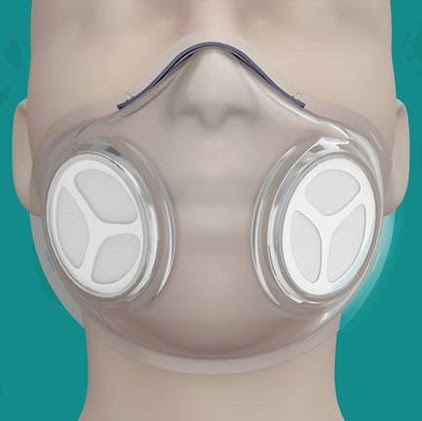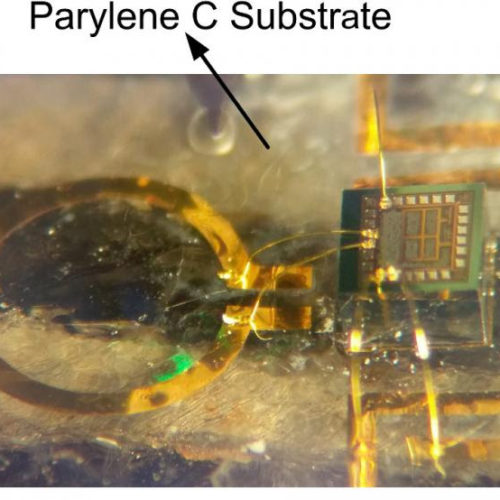DECEMBER 30TH, 2020 MEDGADGET EDITORS EXCLUSIVE As we say goodbye to 2020, the year that will live in infamy, it is important to recognize the many positive developments that occurred in the year of the pandemic. COVID-19 may have shut down industries, but it challenged those working in medicine to invent, adapt, and overcome faster than ever...
Tag: <span>Medical Technologies</span>
Implantable transmitter provides wireless option for biomedical devices
PURDUE UNIVERSITY A PURDUE UNIVERSITY TEAM DEVELOPED A FULLY IMPLANTABLE TRANSMITTER CHIP FOR WIRELESS SENSOR NODES AND BIOMEDICAL DEVICES. view more CREDIT: HANSRAJ BHAMRA/PURDUE UNIVERSITY WEST LAFAYETTE, Ind. – Purdue University innovators are working on inventions to use micro-chip technology in implantable devices and other wearable products such as smart watches to improve biomedical devices,...
Chemists build natural anti-cancer compound with lean new process
Scripps Research collaborators develop a way to seamlessly create the compound’s complex structure SCRIPPS RESEARCH INSTITUTE CHEMISTS HANS RENATA, PHD, AND ALEXANDER ADIBEKIAN, PHD, BOTH OF SCRIPPS RESEARCH, SAY THE BACTERIAL EXTRACT CEPAFUNGIN I IS IN THE SAME CLASS AS SEVERAL FDA-APPROVED ANTI-CANCER DRUGS, WITH SOME… view more CREDIT: SCRIPPS RESEARCH JUPITER, FL–Scripps Research chemists...
Youth more likely to stick with CGM if they are part of decision to start
New study by CHOP researchers finds having youth buy-in from the beginning helps ensure consistent use of continuous glucose monitoring CHILDREN’S HOSPITAL OF PHILADELPHIA Philadelphia, July 31, 2020–Continuous glucose monitoring (CGM) tracks glucose levels of people with type I or type II diabetes through a device that monitors levels throughout the day. These devices improve...
A new cell & gene therapy approach to treat common bleeding disorder
WAKE FOREST BAPTIST MEDICAL CENTER In a new study from the Wake Forest Institute for Regenerative Medicine (WFIRM) researchers have developed an optimized cellular platform for delivering Factor 8 to better treat patients with hemophilia A. Hemophilia A is a genetic disorder caused by a deficiency in, or the absence of, coagulation Factor 8), an...
Study sheds light on how cancer spreads in blood
Analysis of particles shed by tumors points to new, less invasive way to diagnose malignancies CEDARS-SINAI MEDICAL CENTER MAGNIFIED IMAGE SHOWS PROSTATE CANCER CELLS EXHIBITING FORMATION OF EXTRACELLULAR VESICLES ON THE CELL MEMBRANES, WHICH CONTAIN TUMOR-DERIVED PROTEINS AND ARE IMPLICATED IN THE SPREAD OF CANCER. view more CREDIT: IMAGE BY CEDARS-SINAI. A new study sheds...
How chandelier cells light up the brain
by Jennifer Michalowski, Cold Spring Harbor Laboratory Illustration of a chandelier cell (on top in red) connecting to a pyramidal neuron (in green on the bottom) on its axonal initial segment (in blue). Credit: CSHL Within the intricate network of cells that make up the brain, chandelier cells stand out for their elaborate, branching structure....
Detecting antibodies with glowing proteins, thread and a smartphone
o defend the body, the immune system makes proteins known as antibodies that latch onto the perceived threat, be it HIV, the new coronavirus or, as is the case in autoimmune disease, part of the body itself. In a new proof-of-concept study in ACS Sensors, researchers describe a new system for detecting antibodies within a...
Haima Therapeutics licenses synthetic platelet technology from CWRU for hemostatic therapy
Haima Therapeutics has executed an exclusive license agreement with Case Western Reserve University to research, develop, and market artificial platelet technologies to treat patients with various bleeding disorders. The core technologies were developed in the laboratory of Professor Anirban Sen Gupta, a pioneering researcher in platelet-inspired technologies in the Department of Biomedical Engineering at the...
The groundbreaking way to search lungs for signs of Covid-19
By Chris Baraniuk Technology of Business reporter When Covid-19 was at its height in China, doctors in the city of Wuhan were able to use artificial intelligence (AI) algorithms to scan the lungs of thousands of patients. The algorithm in question, developed by Axial AI, analyses CT imagery in seconds. It declares, for example, whether...
- 1
- 2







